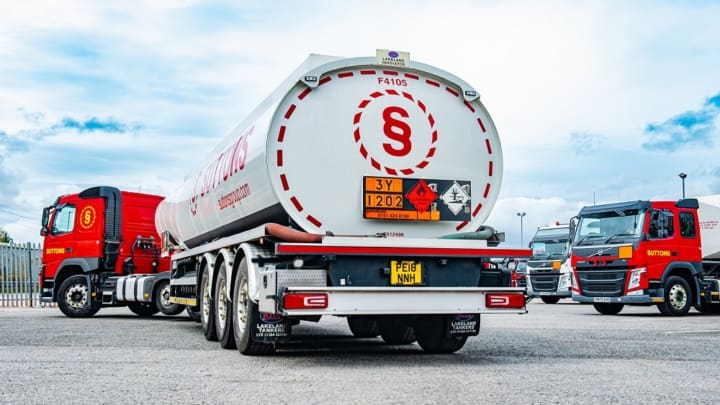
Working remotely but not remote
At Suttons Tankers we have acknowledged the importance of keeping our driver workforce engaged and the fuels team have seen real progress.
Pooling the strength of the regional operations support structure to the local operations management team has been a key factor in our success.
Suttons has invested in its operational management team to ensure that an operations manager is present at our major remote working sites every day to interact with drivers.
For our smaller sites there is a schedule for regular visits. Safety briefings are delivered, guidance is given, and key messages are shared. Having a management presence provides structure to the division and a framework for support.
Joel Hildago, one of our fuels drivers, commented: “It’s reassuring to have a manager available at the start or end of each shift. Having regular training and briefings keeps us all aware of the bigger picture, but it’s also nice to have someone there to debrief the day with.”
In a recent engagement survey, Suttons Tankers’ fuels drivers scored highly, with more than three quarters of our drivers seeing themselves still employed here in two years’ time.
It’s also worth noting that 9 in 10 drivers ‘understand what they need to do to succeed in their role’. This increased management presence has clearly given direction and motivation to the driver cohort.
Strengthening support
Upon reflection of this feedback, the fuels leadership team are increasing their presence further to support engagement with the drivers.
Senior managers are carrying out a series of town hall meetings across all sites in Q1 2024 which are aimed at enhancing the cultivated team spirit and strengthening relationships.
The driver team at Northampton, one of our remote working locations, are positive about the current level of communication with the leadership team. They have commented that “having the senior managers and wider operations team meet us at Town Hall meetings show we are one team.”
Fuel tanker drivers carry an enormous amount of responsibility when on the road.
Drivers such as Steve Shrewsbury-Gee at Suttons understand, and are well trained in, the safe carriage of dangerous goods and the necessary precautions they must adhere to.
Many fuel tanker drivers deliver directly into forecourts. This involves direct interaction with the public. To act as safely as possible, Steve determines the size of each site and respectfully waits until he can safely move the tanker into position for delivery.
He explained: “it is important to cordon off the area to protect the public. The managers at Suttons provide us with the equipment to put the customer and the public first when delivering the product. Knowing I have delivered the product safely at the end of each day is the most important thing to me.”
The engagement survey also revealed that 98% of fuels drivers at Suttons ‘know what they are expected to deliver’ in their role. Clear job expectations and regular management check- ins are a contributing factor to this high level of engagement.
The management and training team at Suttons empower drivers to follow the correct procedures and processes. Regular contact and refresher training is delivered to support them to carry out their job compliantly, delivering the highest levels of service to our customers.
While the results from the survey are encouraging, our efforts won’t stop there. We are looking into rolling out tablet-based communications in our remote locations so that drivers can easily and regularly speak with the management team. Briefings, notices, and business information can be shared with drivers in an interactive way to further improve engagement in these more remote areas.
Thanks to the high levels of engagement in our fuel’s driver workforce, Suttons Tankers can provide the fantastic service, value, and safety our company is known for to a customer base located nationwide. Engagement is a core focus of ours and we are excited to explore other ways to keep our driver cohort engaged and committed, enabling us to grow further in the fuels sector.
